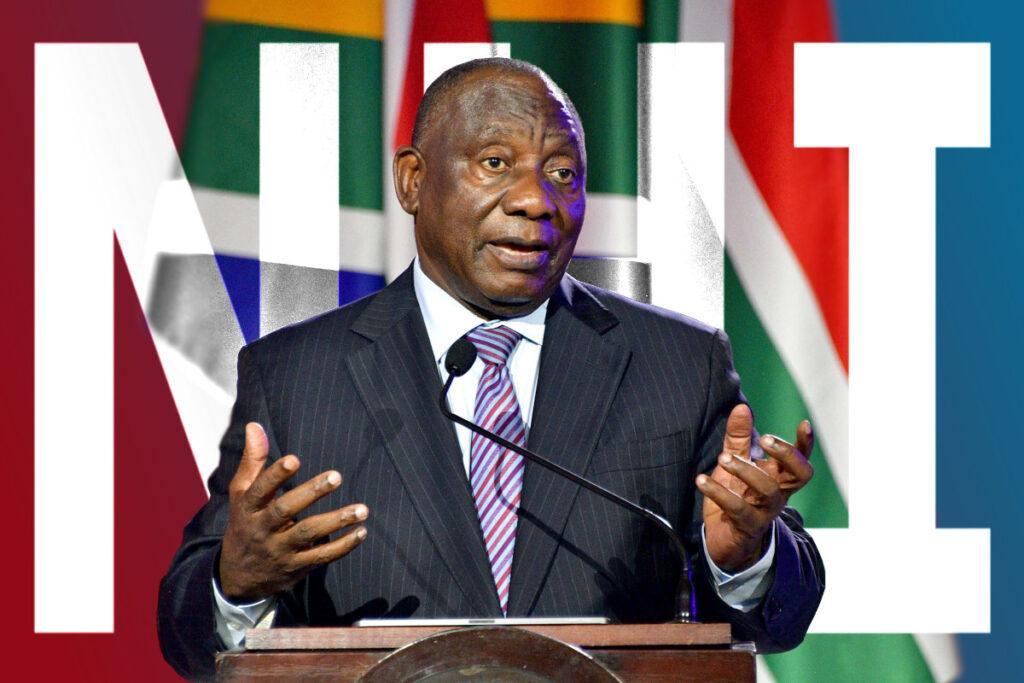Africa-Press – South-Africa. Groups representing private healthcare and medical aids in South Africa have again warned that the government’s National Health Insurance (NHI) scheme is unworkable and unrealistic.
And if the government continues pushing down its current path, the scheme will have far-reaching implications for the medical scheme industry due to the severe limitations it will place on them.
Speaking at the annual Board of Healthcare Funders conference, representatives from the private healthcare industry again appealed to the government to see reason.
President Cyril Ramaphosa signed the National Health Insurance Act into law just weeks ahead of the 2024 National Election.
The move was exceptionally controversial, given that the laws were pushed through after the government ignored various inputs from the sectors that would be most affected by them.
The BHF recently scored a victory over this move, with the High Court ruling that Ramaphosa’s decision to sign the laws is open to review, compelling the president to provide his reasoning for doing so.
A hard line that has been pushed by the BHF, the South African Private Practitioners Forum, Business Unity South Africa and many others is that the NHI is simply unworkable in its current state.
This is due to zero clarity in the laws about what exactly it will fund and where the scheme will find money to function.
At the same time, the laws seek to dismantle private funding of healthcare in the country, explicitly prohibiting medical aid schemes from financing anything under the purview of the NHI.
According to economist Andrew Donaldson, this has led to uncertainty and policy paralysis in health financing, with continued debates about NHI being recycled without progress.
All the while, cracks in the current system continue to widen.
Donaldson said that the NHI debate has become politically polarising and that it would better serve the goal of universal healthcare to reframe the entire discussion.
This would require that the private healthcare sector actually be included in the process.
He said that expanding membership and improving affordability of private healthcare, while reducing the burden on the public health system, is a more plausible strategy for achieving universal healthcare than the integration of public and private services in a single system, as envisaged by the NHI Act.
The big funding problem
Simon Strachan, CEO of the South African Private Practitioners Forum
Depending on what is covered by the NHI, medical schemes have put the estimated cost of NHI coverage at anywhere between R900 billion and R1.3 trillion.
This is premised on giving all South Africans the same level of healthcare as those on medical schemes.
The Department of Health has repeatedly refuted this figure, noting that private healthcare is excessively expensive—but it has not yet given its own costing estimates.
It has been maintained that the scheme cannot be costed until coverage has been determined, and this will only be determined through regulations as the scheme is rolled out in a phased approach.
Most official communications point to outdated estimates from the NHI whitepaper (circa 2010) that it would cost an additional R200 billion a year.
Calculations by Bhekisisa show that even pooling all the money in the public and private sectors together, which is not how it works, would leave the country with a R230 billion NHI gap to fill.
The short answer is that no one really knows how much the scheme will actually cost.
The NHI Act, meanwhile, notes that the scheme will be funded through additional taxes, such as payroll taxes, surcharges, the removal of medical aid tax credits, and budget reallocations.
However, speaking at the conference, Simon Strachan, CEO of the South African Private Practitioners Forum, said that there is no “foreseeable future fiscal scenario” where the NHI can be funded through taxes.
He said that any form of universal healthcare must be designed to incorporate both tax funding and a contributory system.
The private healthcare representatives at the conference again stressed the importance of looking at alternative proposals to the NHI, including those already submitted to the presidency after the fact.
Many of these proposals suggest replacing the NHI’s centralised governance processes with decentralised governance.
They also propose integration of the private sector into universal healthcare through regulation, subsidies, mandatory minimum benefits and other mechanisms.
For More News And Analysis About South-Africa Follow Africa-Press






